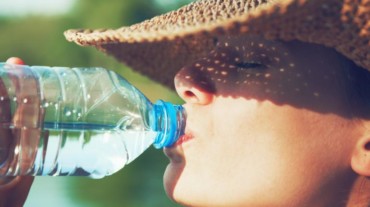Dehydration in summer: Beware of these 5 signs and symptoms
Are you feeling thirsty, dizzy, and experiencing muscle cramps? Is your urine looking darker than usual? Well, hold onto your hats because you may be experiencing dehydration! Let's buckle up and explore the signs and symptoms of dehydration, and what you can do to stay hydrated and healthy!

Dehydration occurs when there is an inadequate intake of fluids or an excessive loss of fluids from the body. If you are experiencing any of these signs of dehydration, it is important to drink more fluids to replenish your body's water supply. If your symptoms persist or worsen, you should seek medical attention. Severe dehydration can be a medical emergency and may require intravenous fluids to rehydrate the body. The signs and symptoms of dehydration can vary depending on the severity of the dehydration, but some common signs include the following.

Feeling thirsty: Thirst is a natural response of the body to signal that it needs more water. When you are dehydrated, your body loses fluids, and the concentration of electrolytesin the blood increases. This causes the hypothalamus, a part of the brain, to release a hormone called vasopressin, which tells your kidneys to conserve water. At the same time, your mouth and throat may become dry, and you may feel an urge to drink water. Image courtesy: Shutterstock

Muscle cramps: Dehydration can cause electrolyte imbalances, which can lead to muscle cramps. Electrolytes, such as sodium and potassium, help regulate muscle function. When you are dehydrated, the levels of these electrolytes can become imbalanced, leading to muscle cramps. Image courtesy: Shutterstock

Is there blood in your stool? HeConstipation: When you are dehydrated, your body tries to conserve water by reabsorbing it from your colon, which can result in harder stools and constipation. Water is essential for the digestive process as it helps to keep the stools soft and easy to pass. Additionally, increasing your fiber intake through fruits, vegetables, and whole grains can also help promote bowel movements and relieve constipation. Image courtesy: Shutterstock re's what you need to know.

